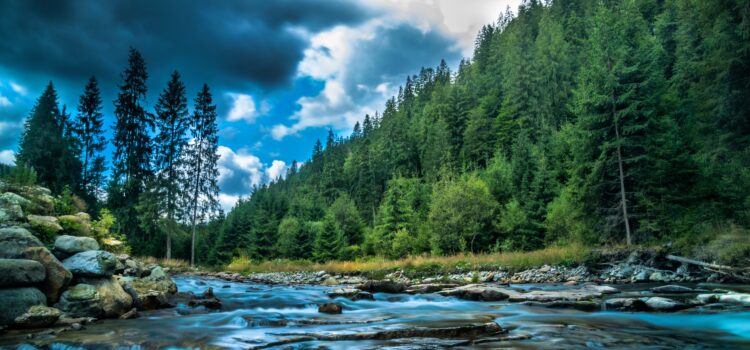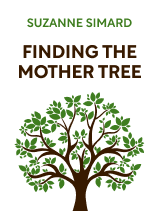

This article is an excerpt from the Shortform book guide to "Finding the Mother Tree" by Suzanne Simard. Shortform has the world's best summaries and analyses of books you should be reading.
Like this article? Sign up for a free trial here.
What is a forest ecosystem? Are forests technically societies?
Suzanne Simard’s research suggests that cooperation is the defining nature of the relationship between trees and other plant life. Her book Finding the Mother Tree suggests that a forest ecosystem is very similar to human societies.
Read more to learn what a forest ecosystem is and how it’s similar to human societies.
Forest Ecosystems as Societies
What is a forest ecosystem? Of course, there are more than just trees and fungi in a forest; a forest is a complex ecosystem of diverse flora and fauna. Simard says we can think of the larger forest ecosystems as similar to human societies. They’re complex, self-organizing, and adaptive. And, importantly, she says they are intelligent.
Because ecosystems operate similarly to human societies, this could explain why we find a prevailing paradigm of competition in the modern scientific worldview and a paradigm of cooperation in the traditional indigenous worldview. Each paradigm is modeled after the society within which it develops.
Simard points out that objectifying nature, thinking of humans as separate from it (and even above it) is a modern Western construct and reflective of a colonialist mindset. First Nations tribes of the region had a symbiotic relationship with the land and existed entirely within these forest ecological communities, rather than viewing them from the outside. She ties all of this into the pressing issue of climate change.
Climate change, she argues, is occurring in large part because of human activities, and these activities are the product of a mindset that has moved away from viewing nature as living, sentient, and sacred, toward a mindset that can’t even imagine trees as sentient beings that have relationships. This, Simard argues, needs to change. Only when we recognize the forests as alive and intelligent will we have the wisdom to recognize that we must honor them because our lives depend on it.
Should Trees Have Rights?
The idea that humans have an inherent right to dominate forest ecosystems can be connected to the Christian notion of God giving humans “dominion” over the Earth. Alternatively, some Christians consider humans “stewards” of God’s creation. However, this still sets humans apart from nature and puts us at the top of a paternalistic kind of hierarchy. This perspective is being increasingly challenged by research like Simard’s as well as by environmental movements, like the “deep ecology” movement.
While the idea that trees have intelligence is still controversial in the scientific community, it’s by no means a new idea. In The Earth People Philosophy, Lakota elder Wallace Black Elk said in 1991 to anthropologist William S. Lyons: “The trees talk. They have a language of their own. So all this green that you see, they communicate…each one of the winged-people has a song….every creature has a song. Even that spider…he walks, he rolls, he flies, and he sings a song….so I want to tell you that you have a lot to learn.” In a 1972 book Should Trees Have Standing? environmental scholar Christopher Stone proposed the idea that trees, oceans, rivers, and other nonhuman living beings in forest ecosystems should have legal personhood and all the protections that entails. Considering what we now know about plant life, perhaps it’s time to revisit that question.

———End of Preview———
Like what you just read? Read the rest of the world's best book summary and analysis of Suzanne Simard's "Finding the Mother Tree" at Shortform.
Here's what you'll find in our full Finding the Mother Tree summary:
- A look at Suzanne Simard's research on the relationships among trees
- What a Mother Tree is, and how it takes care of its community
- How trees communicate in an interconnected, underground network






